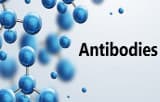SERVA Electrophoresis
 |
||
50 years of experience in the supply of quality reagents at SERVA provides expertise in manufacture, development and distribution of products worldwide. This know-how is the platform for outstanding customer service - all you need to succeed. Our mission is to bring innovative products to the life sciences market, meeting our customers needs. Technical competence and total quality management are the basis for continuous improvement. We pursue the highest standards in product quality, workplace safety and responsibility for the environment we live in. We dedicate our capacity and integrity to guarantee consistent product performance and continuity of supply. We are certified for ISO 9001:2000.
Website : www.serva.de | ||

Affinity resins for antibodies
The basis for purification of IgG, IgG fragments and subclasses is the high affinity of protein A (cell wall protein derived from Staphylococcus aureus ) and protein G( derived from groups C and G Streptococci )for the Fc region of polyclonal and monoclonal IgG-type antibodies. Protein A can be used to isolate monoclonal and polyclonal IgG from ascites, serum, and tissue culture and bioreactor supernatants. Protein A purification is recommended for human (except IgG3; mouse IgG1 may bind only weakly), rabbit, guinea pig, and pig antibodies. Addition of the antibody to a protein A– Sepharose column at pH 8.0, followed by elution at a lower pH.
Protein G has a binding profile opposite to that of protein A with respect to pH: antibodies bind better at a low pH and badly at high pH. However, some antibodies (mouse IgG1, and rabbit and human antibodies) do remain bound to protein G at high pH (8 to 10), so it is best to bind the antibody at pH 5 and elute at pH 2.8. This method is useful for mouse IgG1, rat (most subclasses bind weakly although IgG2b may not), monkey, rabbit, cow, goat, horse, and sheep antibodies.



